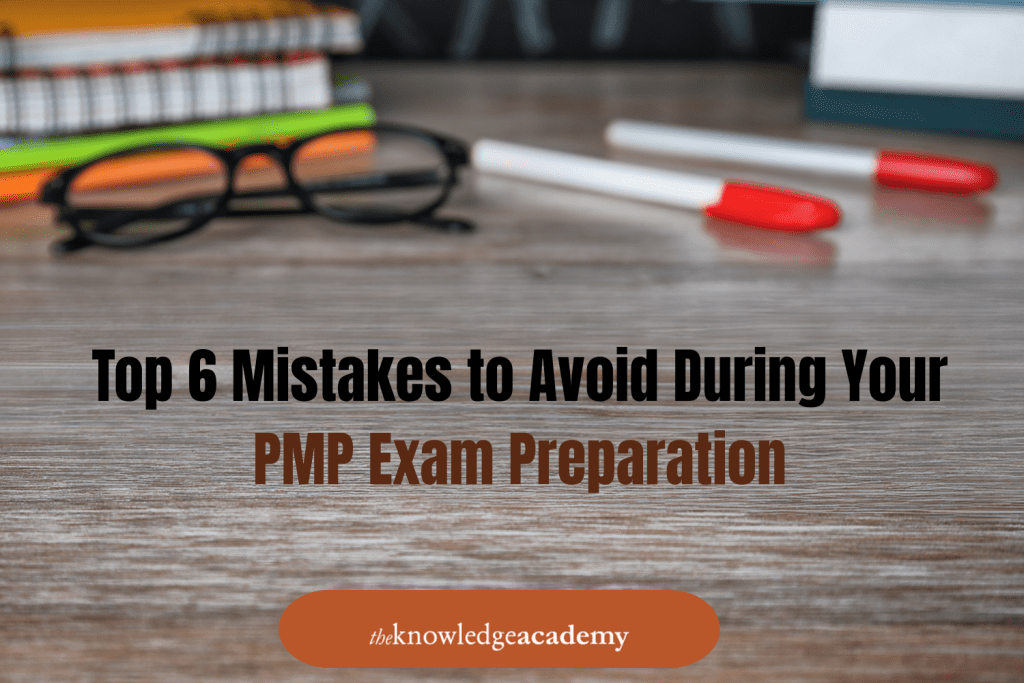
Preparing for the PMP exam is a major step towards becoming a recognised project management professional. Many professionals start with a PMP Course to get the right foundation but often underestimate the importance of knowing the full journey. Understanding the PMP Certification Requirements is just as crucial as mastering project concepts. If you overlook the basics, it could cost you time and confidence.
Let’s uncover the common mistakes that many candidates make and learn how to stay clear of them.
Table of Contents
- Ignoring the Official Exam Content Outline
- Underestimating the Power of Practice Exams
- Cramming at the Last Minute
- Skipping the Agile and Hybrid Approaches
- Not Meeting the PMP Certification Requirements Properly
- Studying Without a Clear Plan
- Conclusion
1. Ignoring the Official Exam Content Outline
You shouldn’t quickly scan and forget the PMP Exam Content Outline. It serves as your official guide to the topics covered in the test. A common mistake students make is to start studying random subjects without ensuring they fit the test format. The domains, tasks, and abilities you must concentrate on are detailed in the overview. Always consult the outline when organising your PMP course study sessions. Doing this allows you to stay on course and save time on topics that might not even come up on the test.
2. Underestimating the Power of Practice Exams
Some applicants believe they will be prepared for the PMP exam if they read enough information. Reading is insufficient on its own. An important part of preparing is taking practice tests. They teach your brain to think critically under pressure and help you comprehend the questions you will encounter. Additionally, practice exams point out areas of weakness that you might otherwise miss. To increase your confidence and endurance, make sure you take full-length tests. Frequent practice guarantees you won’t be caught off guard on test day.
3. Cramming at the Last Minute
It is dangerous to save the most crucial subjects for the final week. Cramming causes your brain to get overwhelmed, which drastically reduces retention. While you may think you are picking things up quickly, your comprehension is becoming superficial. Consistent study over a few weeks or months is a superior strategy. Dividing your subjects into manageable chunks and studying a little daily will help. This approach lessens the stress of last-minute cramming and aids in deeper information absorption.
4. Skipping the Agile and Hybrid Approaches
The PMP test has changed over time. It no longer solely concentrates on conventional project management techniques. The syllabus now heavily emphasises agile and hybrid approaches. It can be a serious error to ignore these regions. You may be asked several questions that you cannot firmly respond to. Ensure that Agile concepts, Scrum fundamentals, and hybrid model operation are included in your PMP course. In addition to helping you pass the test, knowing various delivery methods will get you ready for projects in the real world.
5. Not Meeting the PMP Certification Requirements Properly
Another big mistake is thinking you are immediately qualified to take the test. Meeting the standards for PMP certification is a very important part of the process. Some of these requirements are formal training hours, school credentials, and a certain amount of project management experience. Some applicants send their forms without reading them all through, which can cause delays or rejections. You should take some time to carefully read over the formal standards. Before you start your application, ensure you have all the necessary paperwork and supporting documents.
6. Studying Without a Clear Plan
It would be like going on a long trip without a map if you did not have a study plan. You will still feel lost no matter how hard you try. It is easier to handle your study time and make sure you cover all of your topics when you have a clear plan. It also keeps you going by showing you how far you’ve come. Divide your study tools into daily or weekly goals before getting ready. Deep breathing techniques or meditation might also help ease exam anxiety. Recall that a healthy body supports a keen and active mind, which you need for success on tests.
Conclusion
Strategic planning and persistent work are needed to prepare for the PMP exam. You can increase your chances of success by avoiding these typical blunders. Consider registering for a PMP course offered by a reputable company if you are committed to passing the test and learning the material. With the support of The Knowledge Academy expert-led training, you may confidently satisfy the PMP certification standards and comprehend the most recent techniques.




